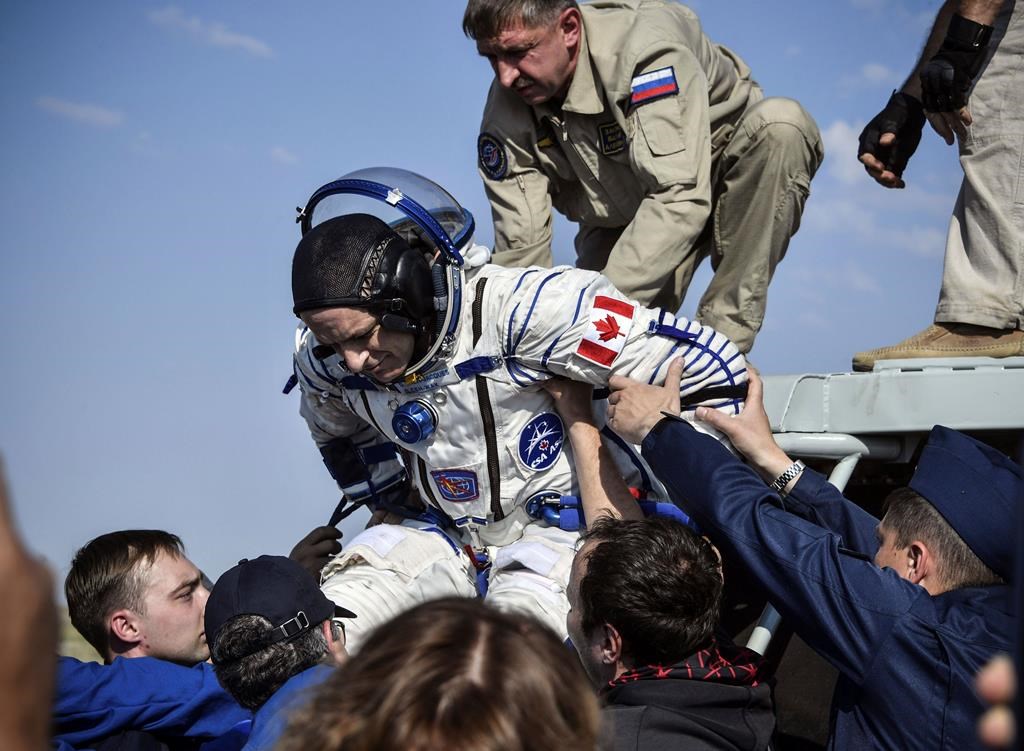Canadian astronaut David Saint-Jacques may be back on Earth, but the impact of his time is space will be long-lasting.

Saint-Jacques was the last to be carried out of the Soyuz capsule after it landed in Kazakhstan, and the astronaut gave a thumbs-up as he emerged.
Dr. Gordon Osinski, director of Western University’s Centre for Planetary Science and Exploration, tells Global News Radio 980 CFPL there will be a lot to learn from Saint-Jacques’ time in space and its impact on the human body, noting that travelling to Mars would require longer time in space.
WATCH: (June 24, 2019) Adjusting to being back on planet Earth

“Despite two or three hours of exercise a day, he’ll have undergone bone and muscle loss. His cardiovascular system will be affected,” Osinski explained.
“When we’re planning to send humans off to the moon and Mars — and then I always say, you know, they’re not going to have people to welcome them on Mars — they’re going to have to land and then get up themselves and make their way onto the surface.”
Saint-Jacques spent 204 days in space, the longest single spaceflight by a Canadian.
- 2021 heat dome fuelled by climate change, intensified wildfire risk: study
- B.C. introduces legislation recognizing Haida Gwaii Indigenous title
- Whale experts confident B.C. orca calf will survive, find family if rescue plan succeeds
- Plastic production cap still contentious as Ottawa set to host treaty talks







Comments